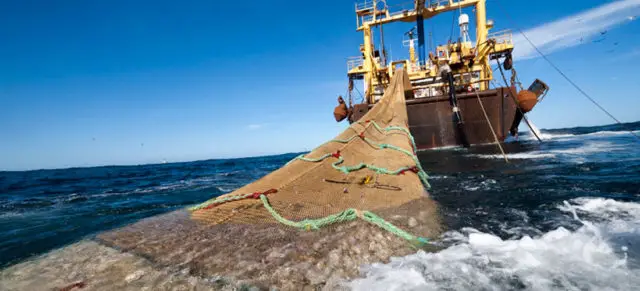Last Friday, August 16th, 2019, the last license for semi-industrial trawling shrimp fishing granted in the country, which generated satisfaction in the environmental sector, expired. The permission given by the Costa Rican Institute of Fisheries and Aquaculture (Incopesca), was in the hands of the Penguin of Puntarenas Public Limited Company.
Since 2013, the Constitutional Chamber prohibited the delivery of new licenses for this type of commercial fishing or the renewal of existing ones. In their historic ruling 10540-2013, the magistrates pointed out the environmental, social and economic impacts of the most harmful technique.
“This puts the country at the forefront, respect for sustainable democratic development is demanded”, said Randall Arauz of the Pretoma Foundation. The organization was one of the actors of the unconstitutionality appeal, which resulted in the 2013 resolution. “Hopefully the country will serve as an example for other countries to eliminate this disastrous practice”, the biologist added.

Katherine Arroyo, manager of the Political Incidence of MarViva Foundation, said that the expiration of the license materializes the feeling of the Constitutional Court. “This, regarding the urgency of establishing criteria in our public policy-oriented according to the principle of democratic sustainable development”, said Arroyo.
The environmental sector recalled the urgency of the State proposing productive alternatives for the fishing sector that was engaged in shrimp trawling, as well as other activities associated with that value chain.
As of the 2013 ruling, government authorities and universities had to generate studies, which argued that the drag can develop in a sustainable way. It should be measured that the incidental fishing of Shrimp Accompaniment Fauna (FACA), which is the fishing of other species that are not the target of trawling can be significantly reduced.
In addition to regulating these licenses, a legal reform, emanating from the Legislative Assembly, must be carried out. Likewise, the technique must respect the principle of sustainable democratic development, given the impact that trawling has on more than 15 thousand artisanal fishermen.
However, the country still does not have reforms in legislation or sufficient technical studies. In fact, a part of the deputies wants to hurry a bill, although the academy – University of Costa Rica (UCR) and National University (UNA) – have reiterated their opposition.
The Observer consulted the president of Incopesca, Daniel Carrasco, about the situation in which trawling is left. But the communication office indicated that he was on tour in Puntarenas and there was no response.
While the last license has expired, from the Legislative Assembly they seek to revive the trawling technique, through bill 21,478. If this is approved, category A (license for semi-industrial shrimp fishing) and B (license for small-scale vessels) would be re-enabled.
The deputy of National Restoration Melvin Núñez promotes the initiative. The evangelical alleges that the project will allow economic recovery in coastal areas, especially in an already depressed area such as Puntarenas. Those who support the project base their approaches on a study conducted by Incopesca, which evaluated the percentages of exclusion of accompanying fauna (FACA) in the “Pinky and Fidel” shrimp fishery.
However, his opponents say that more studies are needed, to affirm that the technique can reduce its environmental impact. “That study is insufficient. It is not a study that meets the minimum requirements required by the Constitutional Court”, MarViva said.
The most harmful technique
For more than 5 years, the artisanal fishing sector, the UNA, UCR and the Center for Research in Marine Sciences and Limnology (Cimar-UCR), and more than 15 environmental organizations have opposed trawling.
The government of Luis Guillermo Solís, with 2 different bills, tried to revive the technique, considered the most serious and dilapidating fishing.
- A 2011 study by the Fisheries and Aquaculture Research Unit of the UCR determined that shrimp trawl fishing endangers shark and ray habitats.
- The FAO Global Shrimp Fisheries Study listed multiple damages to the seabed, ecosystem, economy and social life of the coasts.
- The majority of the catch is not shrimp, but other species, between 70% and 97%.
- It is estimated that between 1950 and 2014, 500 thousand metric tons of these other animals have been returned to the sea, of which 90% are small fish caught by artisanal fishing.
- According to a socio-economic study of the semi-industrial shrimp trawl fishing sector, conducted by the National University School of Economics, trawling only generates 590 direct jobs. Of those, 80% are of poor quality, because they do not reach the minimum wage.
- Shrimp peelers earn an average of 37 times less than license owners.

